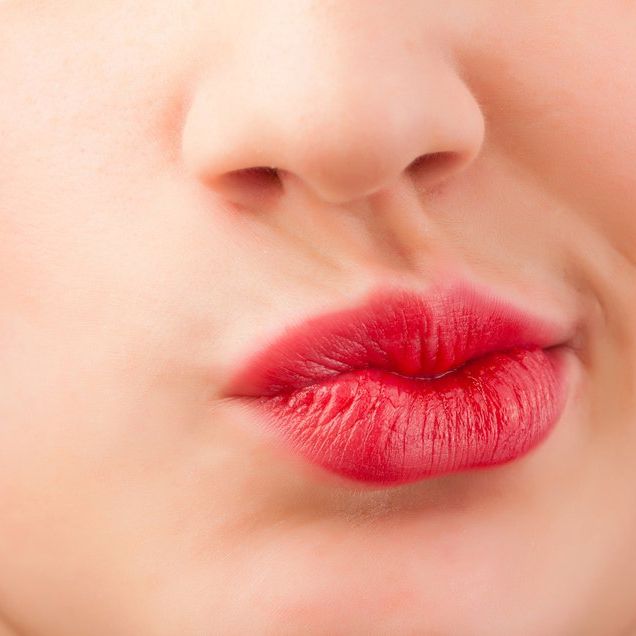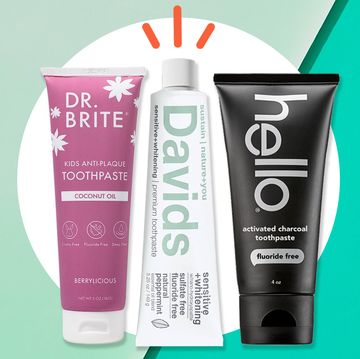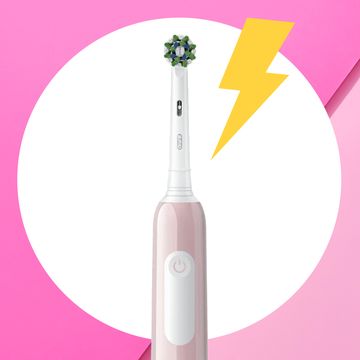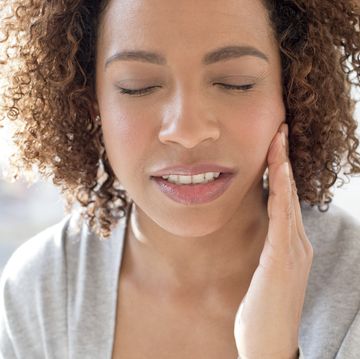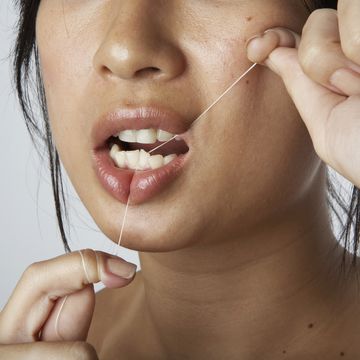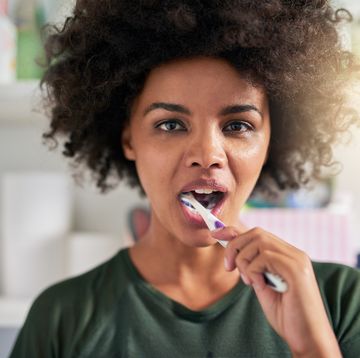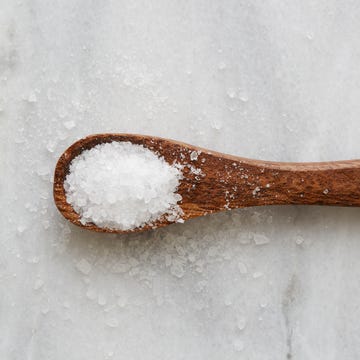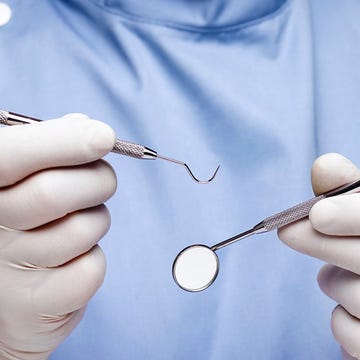Unfortunately, nearly every woman is familiar with yeast infections, including the telltale itching and dread that goes along with them. What you may not know is that don't just occur below the belt—yeast infections can also show up in your mouth (where they're known as oral thrush). Say what?! How does that even happen? Here’s the deal:
What Is Oral Thrush, Exactly?
Oral thrush is an infection caused most commonly by an overgrowth of yeast in the mouth, and sometimes, the esophagus, says Elizabeth R. Roth, M.D., assistant professor of medicine at Harvard Medical School and an internist at Women’s Health Associates at Massachusetts General Hospital. (Experts say yeast exists in our mouths naturally, but oral thrush occurs when the balance is thrown off, so to speak.)
And it’s “the same organism that causes vaginal yeast infections in women,” says Amita Gupta, M.D., deputy director for the Center for Clinical Global Health Education, division of infectious diseases, at The Johns Hopkins University School of Medicine.
Symptoms can include “creamy white lesions on the roof or back of the mouth,” or lesions with a “cottage cheese appearance or redness,” says Gupta. Roth points out that those who have it may experience a “woolly feeling” in the mouth or difficulty swallowing.
RELATED: 7 Disturbing Facts You Never Knew About Yeast Infections
How Common Is It?
“Thrush is most commonly seen in immunosuppressed patients,” like those who are undergoing chemotherapy, have AIDS, or are contending with another serious health issue (such as uncontrolled diabetes), says Roth. That's because a suppressed immune system leaves you more vulnerable to infection. Those who take inhaled steroids, like asthma medication, or oral steroids could be predisposed to oral thrush, since the steroids could throw off the natural balance of yeast in your mouth. Roth recommends that those using inhalers rinse out their mouths after using them to prevent it.
Antibiotics that kill bacteria in otherwise healthy individuals are also a common reason for oral thrush, says Marie-Elizabeth Ramas, M.D., a family physician in Mount Shasta, California, and a member of the American Academy of Family Physician’s board of directors. If you’re taking antibiotics, it could be useful to take a probiotic to help maintain a healthy balance of bacteria in your mouth, she says.
RELATED: Is It a Yeast Infection…or Something Else?
How Do You Get Rid of It?
Gupta says seeing your dentist regularly, maintaining a healthy diet, and being diligent about oral hygiene can help prevent thrush. Some cases can be treated through home remedies (like gargling salt water), says Ramas, but if it’s not getting any better after a few days, make an appointment with your doctor so more serious problems can be ruled out.
For individuals who are otherwise healthy, treating it with prescription anti-fungals, says Roth, is relatively easy. That said, because thrush could be indicative of larger health issues, it’s important to make sure you consult a doctor if you think you’re experiencing it. “It might be nothing, but it warrants an evaluation,” she says.
